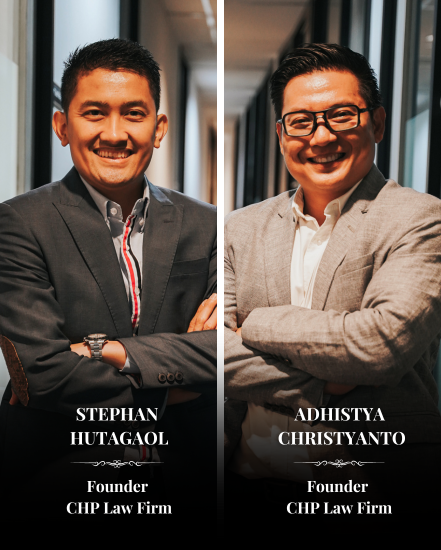Indonesians are big investors in Singapore (property). they have insurance, bank accounts, etc.
How are Assets Distributed When The Owner Passes Away?
- If there is a will, it is done according to the will.
- Otherwise, if there is no will,
Movable assets (e.g. Bank Accounts) will be dealt with according to the law of the domicile (ie. Indonesian Law or Singapore Law)
Immovable assets (e.g. Houses) will be dealt with according to Singaporean Law
Singaporean Inheritance Law
|
Who survives the deceased (i.e. Who is alive alive at the time the deceased passed away?) |
Who are the beneficiaries and what are their shares of the estate? |
|
Spouse (No issue or parents) |
Spouse – 100% |
|
Spouse and issue* |
Spouse – 50% Issue – 50% in equal portions |
|
Issue* (No spouse) |
Issue – 100% in equal portions |
|
Spouse and parents (No issue) |
Spouse – 50% Parents – 50% in equal portions |
|
Parents (No spouse or issue) |
Parents – 100% in equal portions |
|
Siblings and children of deceased siblings (No spouse, issue, or parents) |
Siblings – 100% in equal portions (The children of any deceased sibling will inherit their parent’s share) |
|
Grandparents (No spouse, issue, parents, siblings, or children of siblings) |
Grandparents – 100% in equal portions |
|
Uncles and aunts (No spouse, issue, parents, siblings, children of siblings, or grandparents) |
Uncles and aunts – 100% in equal portions |
|
None of the above |
Government – 100% |
*Half-siblings are given second priority under Singaporean law and stepchildren cannot inherit. Adoptions are recognized from Singapore, Malaysia, and Brunei.
Indonesian Civil Inheritance Law
|
Who survives the deceased (i.e. Who is alive alive at the time the deceased passed away?) |
Who are the beneficiaries and what are their shares of the estate? |
|
Spouse (No issue or parents) |
Spouse – 100% |
|
Spouse and issue |
Spouse and issue – 100% in equal portions* |
|
Father and mother (No spouse, issue, or siblings) |
Father – 50% Mother – 50% |
|
Father, mother, and one sibling (No spouse or issue) |
Father – 33% Mother – 33% Sibling – 33% |
|
Father, mother, and more than one sibling (No spouse or issue) |
Father – 25% Mother – 25% Siblings – 50% in equal portions |
|
One surviving parent (No spouse, issue, or siblings) |
Surviving parent – 100% |
|
One surviving parent and one sibling (No spouse or issue) |
Surviving parent – 50% Sibling – 50% |
|
One surviving parent and two siblings (No spouse or issue) |
Surviving parent – 33% Siblings – 67% in equal portions |
|
One surviving parent and more than two siblings (No spouse or issue) |
Surviving parent – 25% Siblings – 75% in equal portions |
|
Siblings (No spouse, or issue, or parents) |
Siblings – 100%** |
|
Uncles and aunts (No spouse, or issue, or parents, or siblings) |
Surviving paternal*** uncle and aunts – 50% in equal portions Surviving maternal*** uncles and aunts – 50% in equal portions |
|
Children of uncles and aunts (No spouse, or issue, or parents, siblings, uncles, or aunts) |
Surviving paternal*** children of uncles and aunts – 50% in equal portions Surviving maternal*** children of uncles and aunts – 50% in equal portions |
|
Grandchildren of uncles and aunts (No spouse, or issue, or parents, siblings, uncles, aunts, or children of uncles and aunts) |
Surviving paternal*** grandchildren of uncles and aunts – 50% in equal portions Surviving maternal*** grandchildren of uncles and aunts – 50% in equal portions |
*A spouse from a second marriage cannot receive more than 25% when considering issue from a previous marriage
**If there are half-siblings, the inheritance is divided into maternal and paternal branches, half-siblings can only receive a portion from their respective parent
***If the paternal or maternal branch have no heirs, the 50% is transferred to the surviving branch, i.e. 100% goes to the surviving branch
If one works in Singapore, they will have assets in the Central Provident Fund (CPF). This cannot be distributed using a will but instead through a nomination.
If one has insurance, the death benefit is passed through a nomination. If no such nomination has been made, it is governed by the will. If no will exists, it follows the above Singaporean succession law.
What is A Deed for Family Arrangement?
After the passing of the deceased, a deed for family arrangement can be used to vary the terms of will according to the consent of all beneficiaries. This redistributes the assets of the deceased according to this family arrangement.
In the case of blended families, meaning families with step-children, this may be useful as Singaporean law does not provide for stepchildren who are not adopted in Singapore by the deceased.
How Would One Implement A Will in Singapore?
The will has to be done in Singapore, it cannot be done in Indonesia. For this process, it is recommended to hire a Singaporean lawyer to deal with the complexities and nuances of this matter in regards to differences in the process.
For example, in Indonesia, as per Article 863 of the Civil Code, one can only leave up to one third of their assets to non-blood related persons. Thus spouses, children, family members must receive at least two thirds of the assets. No such stipulation exists in Singapore.
To create a will in Singapore, one must:
- The will must be in writing;
- The testator must at least 21 years of age (differing from Indonesia’s 18 years of age);
- The testator must sign at the bottom;
- Two witnesses must be present during the signing and must then sign it in the presence of the testator;
- The two witnesses must not be beneficiaries of the will.
There is no need to have your will notarized in comparison to Indonesia.
To execute a will in Singapore, one must obtain the death certificate of the deceased and the will of the deceased to make an application for a Grant of Probate. Having done this, one must prepare a Supporting Affidavit and Administration Oath within 14 days of filing the application. The executor must be in Singapore to swear the Administration Oath in front of a Commissioner for Oaths at the Service Bureau at a court assigned hearing. There may be a need for an affidavit of foreign lawyer to explain Indonesian law if the deceased is domiciled in Indonesia.
If all has proceeded correctly, you should receive and collect the Schedule of Assets from the Service Bureau and wait for a letter regarding the Request to Extract the Grant. Having received the letter, conduct a check on the court’s records of probate cases and caveats within a day of filing the Request and for the present year. Finally, file the Request. Grants are issued electronically but can be physically printed. Then collect the Grant from the Service Bureau when the Grant is issued.
Article by
Yue-En Chong
Advocate & Solicitor
Managing Director, Bethel Chambers LLC
Incorporated in Singapore with limited liability
www.bethelchambers.com


